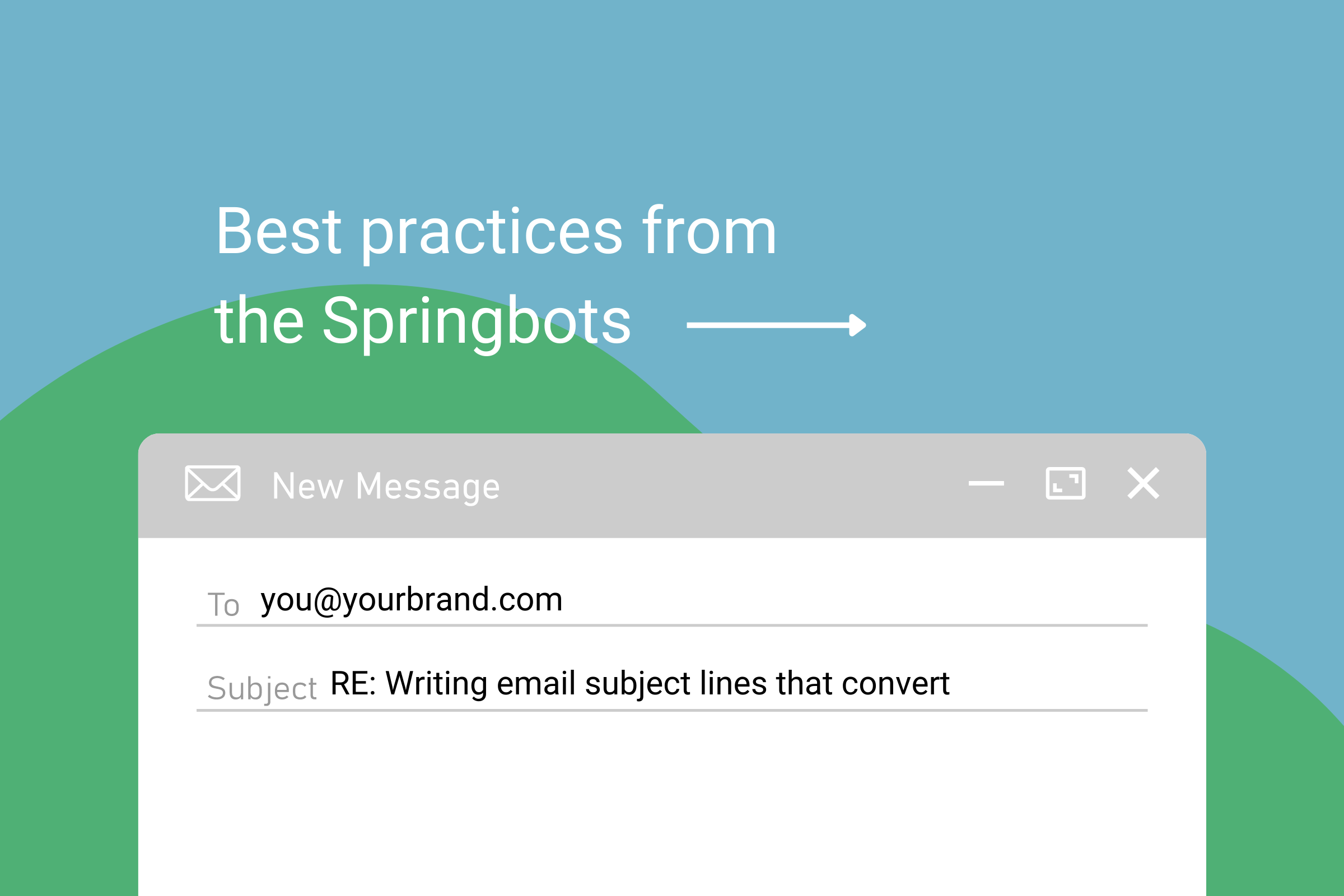Everyone has unopened emails in their inboxes, and it presents challenges for email marketers and online brands. In this practical guide to Email Subject Line Writing, we’ll walk through best practices to get current and potential customers to open your email.
Did you know your low email conversion rate may be due to your subject lines? You can craft great, engaging content, but if your email subject line isn’t attention-grabbing your emails often remain unopened.
Ready to start creating subject lines that boost conversion rates? Here’s a practical guide to help you get started.
How to Write Email Subject Lines That Boost Conversion Rates

The goal of your email marketing campaign is to build awareness and drive sales. Getting consumers to open and respond to the emails starts with a good subject line.
Create a Sense of Urgency
While using phrases like act now or respond immediately does create a sense of urgency, these types of subject lines don’t always convert and can sound spammy or overly aggressive.
Consumers don’t like feeling pressured even when your goal is to inspire action.
However, there are times when it makes sense to use a subject line that calls for urgency.
Some of the situations that call for immediate action are,
- Expiring subscriptions
- A sale is ending soon
- Coupons expiring soon
- Flash sales
Using subject lines that always invoke a sense of urgency will become redundant causing consumers to ignore the call for action.
Inspire Consumers’ Curiosity
Almost everyone has a curious nature. Humans do not like knowledge gaps or unfinished business. Marketers can take advantage of this by creating subject lines that leave consumers wanting to know more or create a sense of missing out (FOMO).
A good tip to remember is to make sure the email subject line is on brand and not too obscure, otherwise, it may remain unopened.
A few examples include:
- Warning consumers not to open the email
- Using the phrase last chance
- Including the word secret in the subject line
A few keywords in your email subject line can make consumers want to learn more, boosting conversion rates.
Everyone Loves a Bargain
Consumers love freebies and it can be an effective marketing campaign if it is done correctly.
People are more likely to open emails promising discounts or coupons for free products. A good way to entice consumers is by including the promo in the email subject line.
A few email marketing ideas include:
- Offering a discount, e.g. Buy a shirt and get a FREE pair of shorts
- Alerting consumers about price drops, e.g. Save 30% on all appliances
You may also want to consider using the recipient’s first name in the email subject line. Not only does it increase email converts, but it also makes the consumer feel like an important part of your business. And it helps with conversion. Studies have shown that using personalization in emails can increase open rates by 26%.
Relevancy is Key
The email subject line informs recipients. It tells them what is in the email and if it is worth opening. Consumers sign-up for your emails because they want to learn something.
A relevant subject line varies according to the type of business. For example, if you are selling a specific product, your subject line should pertain to information about the item. It can be a sale, new inventory, or a BOGO event.
Tips on Creating Effective Email Subject Lines
While the subject line content will differ according to the marketing campaign, some aspects should remain the same.
You always want the email’s sender field to reflect your brand. It means the sender’s field should be recognizable to the recipient. Sales emails and store updates should be from the store or a personality that the consumer is familiar with.
Making the sender’s field more human, inspires trust and encourages consumers the email contains information they want to read.
It’s also a good idea to skip sending no-reply emails. Not only are they impersonal, consumers often ignore emails coming from robots.
A Few Extra Tips
Personalization and relevancy are key for a successful email campaign, but so is the length of the subject line.
Remember, consumers only skim over their inboxes and open emails that are interesting. Most consumers only read the first couple of words before deciding if the email belongs in their spam folder.
Keeping the email subject line short helps ensure consumers will read and open your message. In fact, shorter subject lines have higher conversions on average. Aim for 30-40 characters in a subject line.
Typically subject lines in ALL CAPS perform worse than subject lines with some caps
The same is true for consecutive punctuation marks, on average email subject lines that use a series of punctuation marks, perform worse than campaigns with a single punctuation mark.
Try experimenting with one or two emojis. Some brands find that emojis help their emails stand out in crowded inboxes.
And speaking of experimenting, you should always A/B test subject lines to determine what performs best for your target audience.
One thing every email marketing team should do is segment their list. Not every email subject line applies to everyone on the list. For example, personalized birthday or new customer welcome emails.
A segmented email list also ensures consumers are receiving messages they want to open.
Ready to learn more about creating email subject lines that lead to conversions? We can help you improve open rates, reduce bounce rates and build successful marketing campaigns.
Looking to learn more email marketing tips? Check out our guide to Five Best Practices for e-commerce retailers.
Or watch our on-demand video on How to Become an Email Marketing Pro.
If you’d like to try Springbot for free, sign up for a 14-day trial here. Or schedule a walkthrough of the platform with one of our eCommerce experts here.




